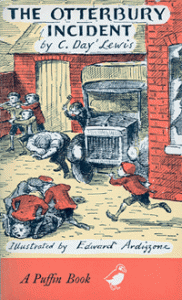Hollywood is poised to make a Tintin movie, apparently, so we have two recent think pieces about comics’ greatest boy reporter in plus-fours. Matthew Parris declares that he’s obviously gay. The Economist somehow manages to take an exquisitely Economistesque line, getting digs in at the French while backhandedly praising Americans for their peculiar issues, while allowing that the Brits are probably somewhere in the middle. Here is the concluding paragraph:
Tintin has never fallen foul of the 1949 French law on children’s literature [making it illegal to portray cowardice positively]. He is not a coward, and the albums do not make that vice appear in a favourable light. But he is a pragmatist, albeit a principled one. Perhaps Anglo-Saxon audiences want something more from their fictional heroes: they want them imbued with the power to change events, and inflict total defeat on the wicked. Tintin cannot offer something so unrealistic. In that, he is a very European hero.
The Parris piece is mock-serious, otherwise I would have to ask: is he serious? But he sort of seems serious, so I’m wondering whether, on some level, he thinks Hergé really meant to imply that in the world of the fiction (oh, never mind, I’d just wander off into philosophy nonsense about true-in-the-world-of-the-fiction. Parris is obviously taking the piss.) So the question we’ve got to ask is: are Tintin and Haddock sex jokes likelier to be funnier, on average, than the corresponding Batman and Robin jokes, which we have certainly all heard by now? (Obviously it’s much funnier to make jokes about Tintin and Haddock being Batman and Robin.) But Parris makes some interesting observations. What do you think?
Let’s turn the question around: are there actually such things as old-fashioned adventure books for boys that don’t seem vaguely campy, hence homoerotic? Because all you need is: no women. (Except for mom, maybe.) A bunch of males doing things together that don’t quite make sense, but it’s all very urgent. The male characters talking funny.
I do concede that the Tintin books are far more exclusively male-populated that even the standards of healthy boys’ adventure would seem to demand.
One thing The Economist claims, in passing, which I’m not really sure about, is that Tintin is almost unknown in America. Obviously you have to judge by the standards of comics not, say, Paris Hilton. If you show the average American a picture of Tintin, will they not know who this kid is? I’ve have noticed that Tintin is oddly missing from some ‘best comics’ lists. Wizard’s list is hopelessly capes&tights, so no surprise there. But here’s another. No Tintin. [UPDATE: nope. He’s there, after all. I missed him because I searched for his name spelled correctly – Hergé – rather than minus the accent. Ahem.] I read Tintin as a child. Didn’t lots of other people?
 (the original Ardizzone illustrations are all inside though and
(the original Ardizzone illustrations are all inside though and